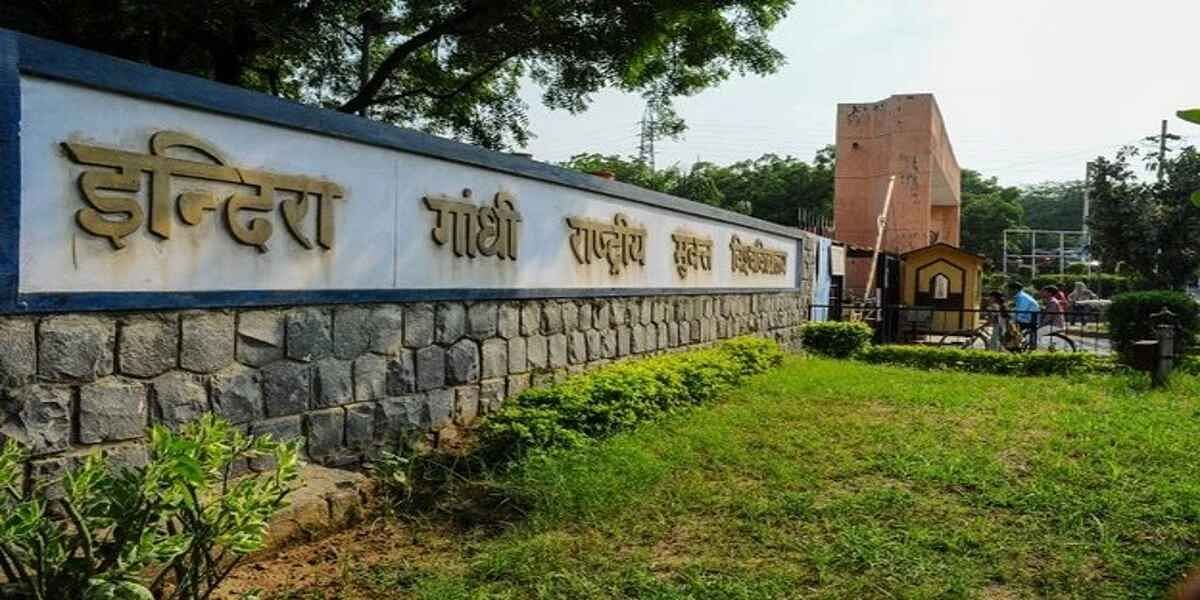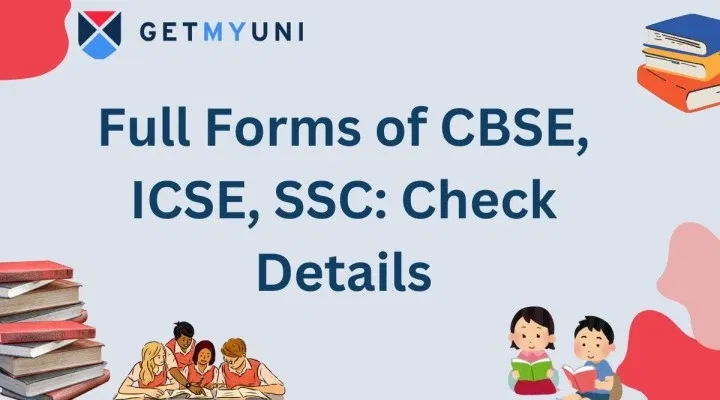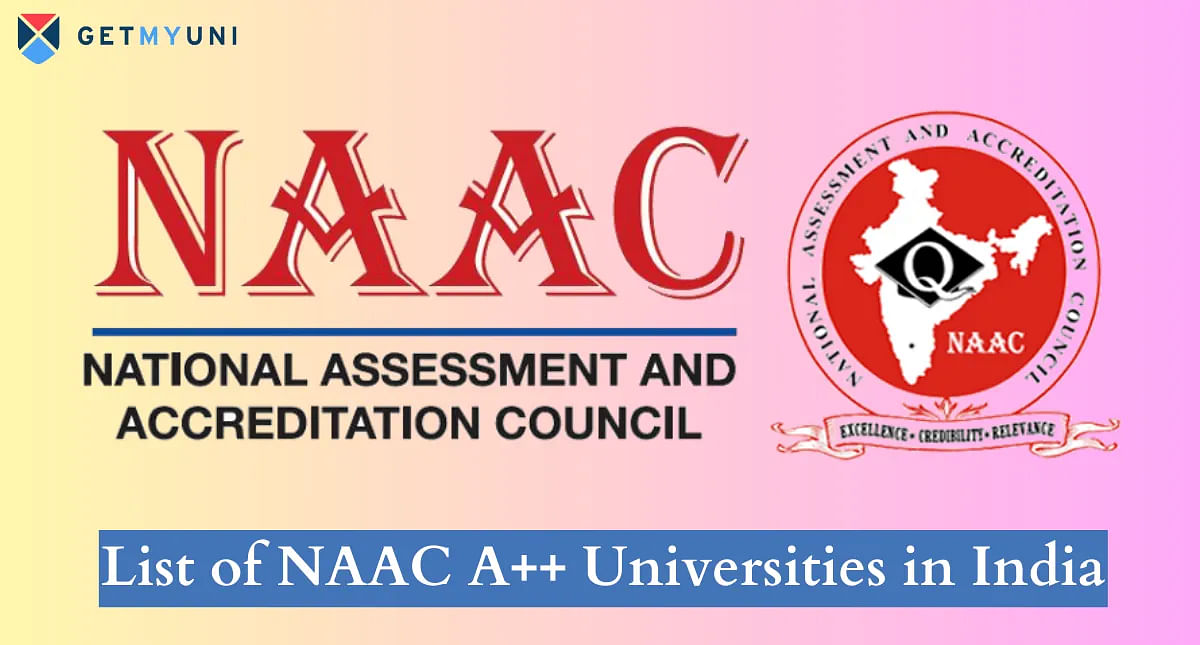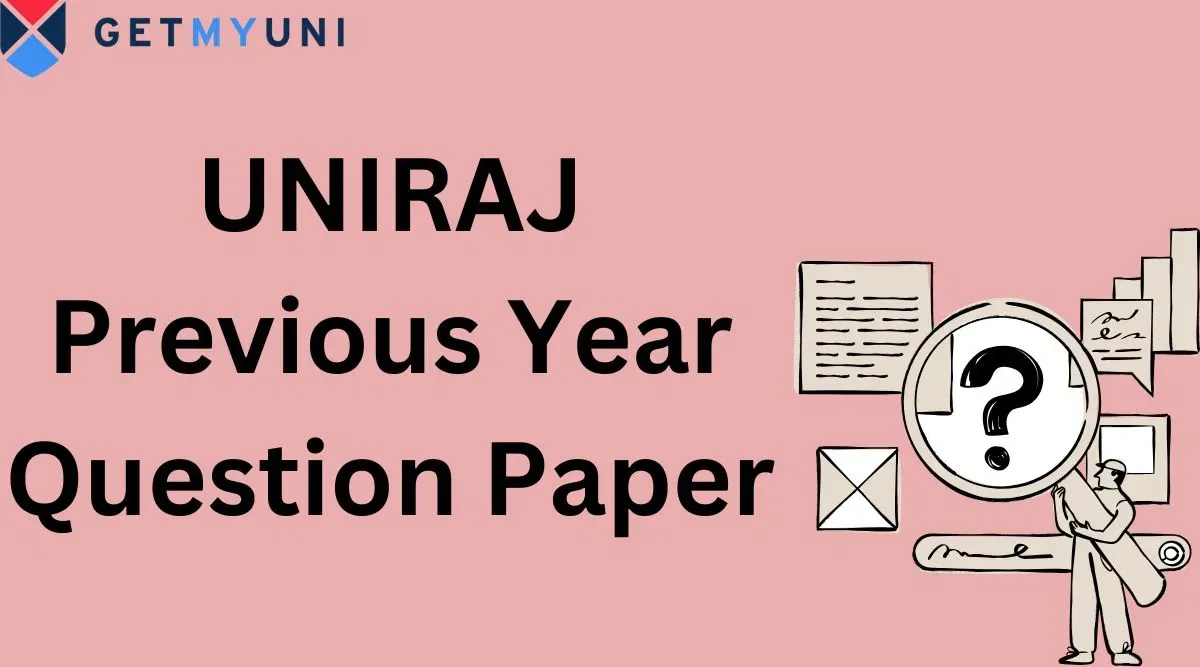Get complete information on top Ph.D Entrance Exams 2024. Also. check eligibility criteria, syllabus, exam pattern, dates, question papers and career opportunities after Ph.D.
Ph.D examinations conducted by various authorities across India which facilitate individuals to get a Ph.D. However, candidates must bear in mind that they can pursue a Ph.D. course only after they complete their Master's degree course in that particular field. The most common way to get a PhD is by applying for various entrance exams that facilitate the individual to get a PhD in India. Also, candidates must keep a check for PhD Admission and Entrance Exam Notification 2024.
In India, the National Testing Agency (NTA) conducts the National Eligibility Test (NET) on behalf of the University Grant Commission (UGC). NET is conducted across India to determine the eligibility of candidates for Assistant Professor only or Junior Research Fellowship and Assistant Professor.
Ph.D. Entrance Exams
PhD stands for Doctor of Philosophy, which is a title that is desired by a lot of individuals who are interested in devoting their careers to research in a particular field. It encourages postgraduates to opt for advanced studies and research. This is a title that is also desired by many individuals who aspire to be educators to future generations.
Here are some reasons why a PhD is necessary today:
- A PhD offers the holder a guaranteed job in a university or college. Depending upon the subject, candidates can secure jobs in law firms, consultancies, or even publishing houses.
- The mastery and expertise over the subject matter give the candidate an edge over the competition.
- And the most valuable asset of all - better reputation in terms of qualification.
However, for a Ph.D. in Engineering courses, the candidates are required to qualify for the GATE entrance exam. The various entrance exams for Ph.D. courses are as follows:
About JRF
The Junior Research Fellowship (JRF) is offered to candidates who qualify for UGC –NET or CSIR-NET. NTA conducts this exam twice a year, in June and December. The tenure for completion of JRF is 2 years, and the candidates are offered a stipend of up to INR 28,000.
After the successful completion of JRF, the candidates are promoted to Senior Research Fellows. SRF is for three years and is granted on the premise of the performance in JRF.
Eligibility Criteria for Ph.D. Entrance Exams
The candidates who are applying for the exam must check the eligibility criteria before filling the application form. The eligibility criteria for a few of the examinations that were mentioned above are as follows:
UGC NET 2024 Eligibility Criteria
The National Testing Agency which conducts the University Grants Commission National Eligibility Test (UGC NET) also lays down certain requirements that students need to meet in order to be eligible for UGC NET. If a candidate fails to meet these requirements their application for UGC NET is bound to be considered invalid. The UGC NET eligibility criteria are as follows:
Qualification:
- The candidates who are applying for UGC NET must have a Master’s Degree or its equivalent from a board/university recognized by UGC.
- Candidates must have an aggregate of 55% marks (50% marks for SC/ST/OBC/PwD) category in the Master’s Degree.
- Applicants who are in the final year of their qualifying exam can also apply for UGC NET.
Age Limit:
- There is no age limit for the post of Assistant Professor as per the provisions. In the case of JRF, the age of the applicant must not be over 30 years as on 01-01-2024.
- The NTA has given the reserved candidates an age relaxation of 5 years.
- They have given the candidates who are pursuing an LLM degree an age relaxation of 3 years.
- The NTA has given the candidates who served armed forces an age relaxation of 5 years.
Exemption (Eligibility for Assistant Professor):
- Candidates must have completed their NET/SLET/SET exam who are willing to be eligible for the post of Assistant Professor in various Universities or institutions.
- The NTA will exempt the applicants to appear in the exam who cleared their SET before 01-06-2003, recognized by UGC.
- They will exempt the aspirants to appear in the exam who cleared the UGC/CSIR JRF examination earlier than the year 1989.
- The NTA will exempt candidates who hold Ph.D. Degree by UGC from the minimum eligibility criteria of NET/SET/SELT.
Note:
- Candidates who hold only a Bachelor's Degree are not eligible for a Lectureship.
- As per the CSIR UGC NET eligibility criteria 2024, the candidate must ensure that the date of passing the examination must be 01-01-2024.
CSIR NET 2024 Eligibility Criteria
Candidates must be careful while checking through the eligibility criteria for CSIR NET. If the eligibility is not met, candidates will not be allowed to appear for the Ph.D. entrance exam.
Qualification:
- The candidate who belongs to general (UR) / general-EWS and OBC must hold an M.Sc. or equivalent degree/BE / B. Tech / B. Pharma / MBBS/ Integrated BS-MS / BS-4 years with at least 55% marks to be eligible for CSIR UGC NET.
- Candidates who belong to SC/ST and persons with disability (PwD) need to score at least 50% marks in M.Sc. or equivalent degree/BE / B. Tech / B. Pharma / MBBS/ Integrated BS-MS / BS-4 years.
- Applicants who registered for M.Sc or have completed their graduation can also apply for CSIR UGC NET 2024 under Result Awaited (RA) category in case they will complete the qualifying degree with the required percentage of marks within two years to avail of the fellowship from the effective date.
- Aspirants or B.Sc (Hons) or equivalent degree holders enrolled in Integrated MS-Ph.D. program must have at least 55% marks for General candidates and 50% marks for SC/ST/PWD.
- Candidates who have a Bachelor’s degree are eligible for the fellowship only after getting registered/enrolled for Ph.D./Integrated Ph.D. program within the validity period of two years.
Age Limit:
The relaxation on the age limit for different categories are:
| Category | Age Relaxation |
| SC/ST | 05 years |
| PwD | 05 years |
| OBC | 03 years |
| Female | 05 years |
ICMR JRF 2024 Eligibility Criteria
Meeting the eligibility criteria for ICMR JRF is a must for a lot of reasons concerning the candidates. The eligibility criteria are the first and most basic requirements for students to meet when applying for ICMR JFR and the inability to do the same will lead to the discontinuation of their fellowships. The eligibility criteria are mentioned below.
Qualification: Applicant must have an MSc or MA degree from a recognized institute.
Minimum marks required for qualifying for the exam
| Category | Minimum aggregate required |
| General/EWS/OBC | 55% |
| SC/ST/PwD | 50% |
Age Limit:
- Candidates who belong to the unreserved category should not be older than 28 years as of 30-09-2024.
- They have given the OBC Category an age relaxation of 3 years, and the upper age limit for those candidates is 31 years.
- The candidates belonging to SC/ST/PwD Category have an age relaxation of 5 years. The upper age limit for those candidates is 33 years.
- Female candidates can also apply for ICMR JRF until the age of 33 years.
Exam Pattern for PhD Entrance Exams
The exam pattern of an examination serves as an important part of the preparation process. It will help you understand the type of questions, marking scheme, number of questions, and other important aspects of the exam paper. The exam pattern for a few of the PhD entrance exams are as mentioned below:
UGC NET 2024 Exam Pattern
Exam patterns especially for exams like UGC NET are updated from time to time by the examination conducting authorities and knowledge of the latest structure and exam pattern is a must on a candidate's part. The NTA releases the exam pattern for UGC NET on their official website through relevant documents or announcements. Information regarding the UGC NET exam pattern is given below.
Exam Mode: Online Computer-Based Test
Type of Questions: MCQs
Language Medium: English and Hindi
Marking Scheme:
- For each correct answer: +2 marks
- There is no negative marking for incorrect answers.
| Papers | Number of Questions | Maximum Marks | Time Duration |
| Paper-I | 50 | 100 | 60 Minutes |
| Paper-II | 100 | 200 | 120 Minutes |
ICMR JRF 2024 Exam Pattern
Preparations for examinations like ICMR JRF are not limited to learning from study materials and guidebooks but also include being comfortable with the type of questions asked, topics covered in the syllabus and the examination pattern itself, an impressive score is achieved only when candidates are well-versed with all aspects of ICMR JFR. The ICMR JRF exam pattern is mentioned below.
- Exam Mode: Online
- Type of Questions: MCQs
- Language Medium: English
- No. of Sections in the question paper: 3
- Total number of questions: 250
- Questions attempted: 125
- Negative Marking: The conducting authority has set up the rules for negative marking. They will deduct 0.25 marks for every incorrect answer.
- Qualifying Marks: Tabulated below.
| Category | Qualifying Marks (In Percentage) |
| General/EWS/OBC | 55% |
| SC/ST/PwD | 50% |
The conducting authority has divided the ICMR JRF into three subjects. Each candidate must prepare and attempt only two of these subjects. The General Aptitude section of the exam is mandatory. This section comprises 50 questions. Candidates must choose between Life Sciences and Social Sciences. Each of these sections will have 100 questions. It allows candidates to attempt only 75 questions from either of these sections. The system will not allow the candidates to mark over 75 questions in the examination.
Syllabus for Ph.D. Entrance Exams
Here we have provided the syllabus for various Ph.D. entrance exams. You should refer to the syllabus for the Ph.D. entrance exam you are going to appear for during your preparation process. You can also find out more about the entrance exam syllabus for subjects like botany, chemistry, zoology, genetics, physics and more here if you are a Ph.D. aspirant. We have covered only the topic names below. Do explore the detailed syllabus to improve your knowledge in the topics that you are weak at.
UGC NET 2024 Syllabus
UGC NET exam syllabus is based on candidates' existing knowledge. The syllabus is divided into paper I and paper II. The syllabus of the exam differs according to the subjects. The topic for a paper I are as follows:
- Teaching Aptitude
- Research Aptitude
- Comprehension (Based on research aptitude)
- Communication
- Aptitude and Mathematical Reasoning
- Logical Reasoning
- Data Interpretation
- Information and Communication Technology (ICT)
- People Development and Environment
- Higher Education System
Part II consists of 81 subjects offered by UGC NET. Candidates can choose the subject of their own choice or the one they have studied in their post-graduation or equivalent subjects.
CSIR NET 2024 Syllabus
To apply for CSIR NET candidates are required to qualify for the basic eligibility. The CSIR NET syllabus is focused on five branches of Science and is divided into parts A and B.
The syllabus for part A is common for all, listed below are the areas of study. Candidates can prepare according to the syllabus:
- Logical Reasoning
- Quantitative Aptitude/Numerical Ability
- Graphical Analysis
The syllabus for part B mainly consists of the five streams of Science:
- Life Science
- Physical Science
- Chemical Science
- Mathematical Science
- Earth Science
ICMR JRF Syllabus for 2024
The Junior Research Fellowships (JRF) are completely merit-based. Shortlisted candidates are eligible for admission to the ICMR and are awarded grants to complete their Ph.D. The ICMR JRF exam is divided into 3 sections, section A is compulsory, and candidates can either choose section B or section C. The syllabus for ICMR JRF are as follows:
- General Aptitude Test: Scientific phenomenon, General Knowledge, and Statistics
- Life Sciences
- Social Sciences
Question Papers for Ph.D. Entrance Exams
Students can also find a great deal of assistance with their preparation for a Ph.D. entrance exam if they find the right study material, getting all the information regarding difficult topics, important questions and answers, etc. can be a blessing for students as it reduces a lot of extra effort on the part of the student and also helps them boost their confidence for a great score or result. Find below the related questions and answers of various Ph.D. entrance exams:
| Entrance Exam Question Papers |
| UGC NET Question Papers |
| CSIR NET Question Papers |
| GATE Question Papers |
| IPU CET Question Papers |
List of Universities in India Offering Ph.D.
Here is the list of universities in India that offers Ph.D. courses. Most of them accept the scores of all India entrance exam for Ph.D.
| University of Calcutta (CU, Kolkata) | Jawaharlal Nehru University (JNU, New Delhi) |
| Indian Institute of Science (IISc, Bangalore) | Banaras Hindu University (BHU, Varanasi) |
| University of Delhi (DU, Delhi) | Manipal Academy of Higher Education (MAHE, Manipal) |
| Anna University, Chennai | Birla Institute of Technology & Science (BITS, Pilani) |
| Indian Institutes of Information Technology (IIIT) | Indian Institute of Management (IIM) |
| Indian Institute of Technology (IIT) | Jamia Milia University |
| AIIMS, Delhi | Amity School of Engineering and Technology |
How Can We Apply for a Ph.D. Course in India?
For applying to Ph.D. courses in India, candidates need to satisfy the minimum eligibility criteria. Ph.D. entrance exam in India is conducted by various authorities to facilitate candidates to achieve a PhD. However, the seats are limited for the course.
Additionally, colleges accept the scores of PhD exam in India, along with interviews and research aptitude tests for Ph.D. entrance. The process to apply is as follows:
- The application process is available both online and offline.
- To apply online, candidates need to check the eligibility details mentioned on the official website before applying. Then proceed to the official website of the university/ college and register.
- Next, fill up the application form with all the documents required.
- Afterwards, appear for the all-India Ph.D. entrance exam 2024 as the college/ university requires.
- Once the results are published, the candidates will be called for the interview round if they secure the needed marks.
- Further, if the interview round is clear, candidates will be offered a seat at the university/ college to pursue a Ph.D.
Career Opportunities after Ph.D
Most Ph.D. candidates change into an academic domain when they can choose other professions as well. It’s crucial to apprehend all the possibilities you have got in front of you when looking for entrance exams for Ph.D. in India. A few job roles you can take up after completion of Ph.D. include the following:
- Market Research Analyst: As a Ph.D. graduate, your capacity to analyze large amounts of statistics and identify comparative advantages between technologies is what makes you the right fit for this role.
As a Market Research Analyst, you will be responsible for gaining information about commercialization possibilities as well as evaluating the key strengths and weaknesses of your organization versus the competitor. - Competitive Intelligence Analyst: In the role of a CI Analyst, you’ll be required to put your analysis of the competitors into action. This is a pivotal role, as it assists the management team in making strategic decisions using your analytical and research skills.
- Product Manager: This is a multifunctional role and calls for collaboration from several divisions of the organization. It can be the right fit for you as a Ph.D. graduate if you can analyze and understand the factors driving your company. Based on your analyses, the teams need to comprehend innovative solutions for it.
- Operations Research Analyst: This role is directly related to big data analytics. It requires an understanding of data mining techniques, data modelling, and statistical analysis. They are expected to solve operational problems along with finding cost-effective, yet efficient solutions to the organization.
- Quantitative Analyst: As a QA Analyst, you will be involved in several types of analysis, including data, finance, and statistical modelling
Science Ph.D. candidates are usually preferred for this role, because of their ability to understand the technological sectors.
A Ph.D. aspirant can have a lot of questions regarding entrance exams as doing a Ph.D. in any particular field is no small feat. Doubts regarding Ph.D. qualifying entrance exams, entrance exam registration, important documents like admit card and hall ticket, syllabus, online events and procedures like form release dates, registration window, etc. are very common. Aspirants are advised to always stay up to date with the latest information regarding their preferred Ph.D. entrance exams with the help of tools like mobile and PC updates, alerts and notifications.










